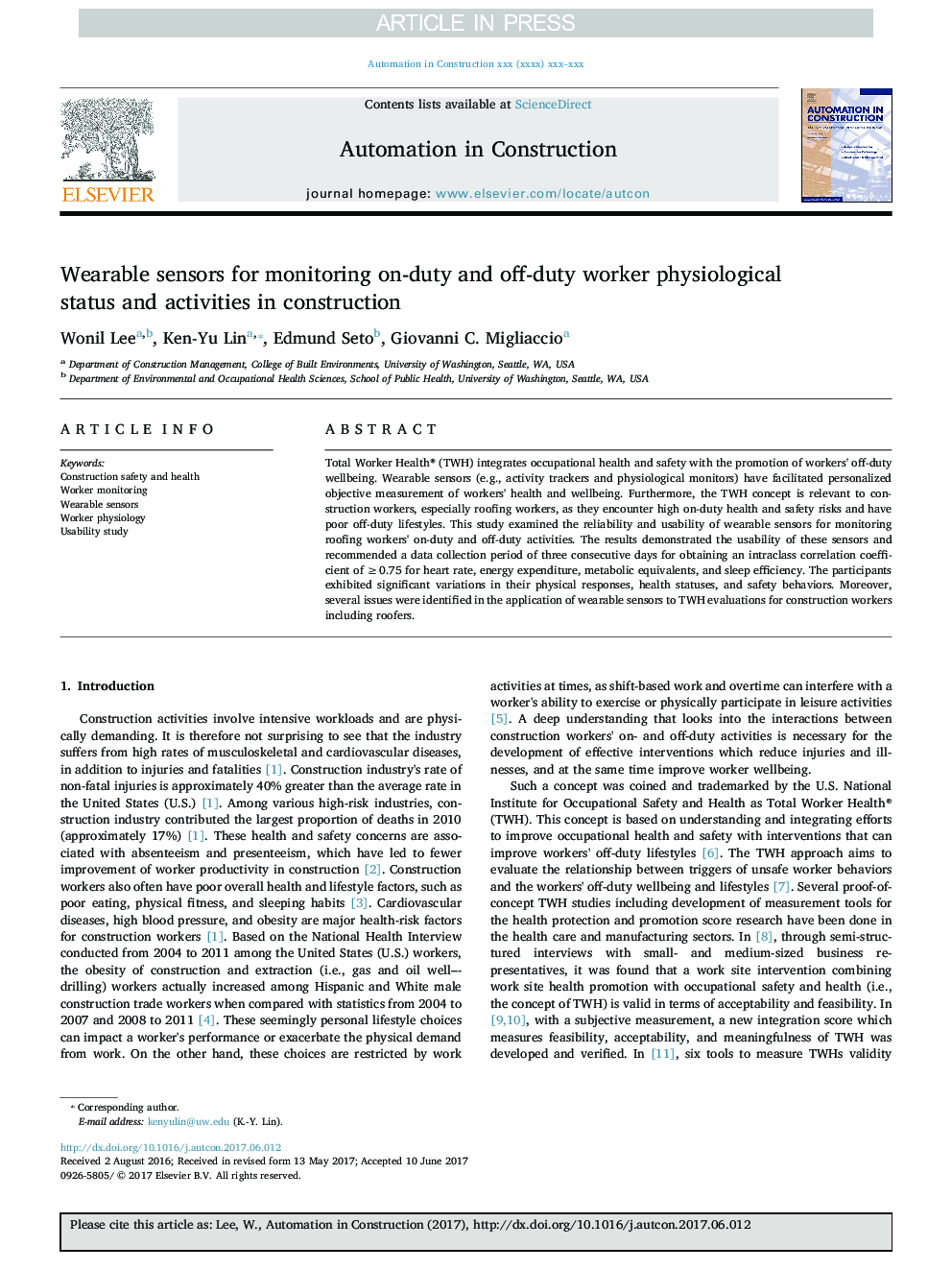| Article ID | Journal | Published Year | Pages | File Type |
|---|---|---|---|---|
| 4911237 | Automation in Construction | 2017 | 13 Pages |
Abstract
Total Worker Health® (TWH) integrates occupational health and safety with the promotion of workers' off-duty wellbeing. Wearable sensors (e.g., activity trackers and physiological monitors) have facilitated personalized objective measurement of workers' health and wellbeing. Furthermore, the TWH concept is relevant to construction workers, especially roofing workers, as they encounter high on-duty health and safety risks and have poor off-duty lifestyles. This study examined the reliability and usability of wearable sensors for monitoring roofing workers' on-duty and off-duty activities. The results demonstrated the usability of these sensors and recommended a data collection period of three consecutive days for obtaining an intraclass correlation coefficient of â¥Â 0.75 for heart rate, energy expenditure, metabolic equivalents, and sleep efficiency. The participants exhibited significant variations in their physical responses, health statuses, and safety behaviors. Moreover, several issues were identified in the application of wearable sensors to TWH evaluations for construction workers including roofers.
Keywords
Related Topics
Physical Sciences and Engineering
Engineering
Civil and Structural Engineering
Authors
Wonil Lee, Ken-Yu Lin, Edmund Seto, Giovanni C. Migliaccio,
